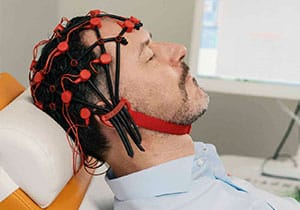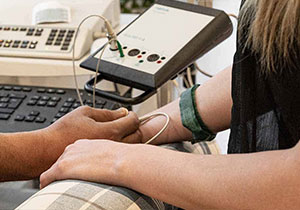
Burnout
Burnout syndrome (burn-out syndrome) or burnout is a condition characterized by mental, emotional and physical exhaustion, weakness and fatigue. It develops over a longer period of time. Ultimately, it leads to a loss of quality of life and, in most cases, to secondary illnesses such as anxiety disorders and depression. The boundaries between these illnesses are blurred.
Burnout can have a variety of psychological and physical (bodily) causes:
Psychological symptoms and complaints of burnout syndrome
- Emotional exhaustion with the feeling of being overwhelmed
- Psychosomatic diseases
- Depression
- Cynicism and aggression
- Need for distance and loneliness
- Assigning blame
- Increased risk of addiction — alcohol, tobacco consumption, drugs
- Lack of drive and concentration
- Lack of motivation, accompanied by difficulties in coping with life
- Indifference and disinterest
- Existential despair
Physical symptoms and complaints of burnout syndrome
- Sleep disorders
- Chronic tiredness and exhaustion
- Lack of energy
- Night sweats (night sweats)
- Headache
- Stomach cramps
- Increased susceptibility to infections
Burnout syndrome usually affects people who are highly self-motivated and have high demands and expectations combined with idealistic ideas about themselves and their work. If goals and hopes are not fulfilled in reality, resignation and frustration can be the result. A lack of recognition and problems in the private sphere can also contribute to the development of burnout syndrome.
Common causes of burnout syndrome
- Excessive ambition, perfectionism
- Stress, high workload and conflicts with superiors and colleagues
- Lack of compensation (“work-life balance”)
- Contradictions between own demands and real conditions
- Disturbances in the day-night rhythm, e.g. due to shift work, resulting in insufficient sleep
- Private conflicts
- Problems with perception and enforcement of own stress limits, often psychodynamic backgrounds
The aim of treatment must be to regulate the physical and mental overload.
Even if burnout is not an independent disease in the diagnostic catalog of doctors and psychotherapists — it is not a “fashionable disease”! In view of the fact that burnout is considered the “little sister of depression”, every burnout patient must be taken seriously and treated. The earlier the problem is recognized and treated, the better the course and prognosis.




